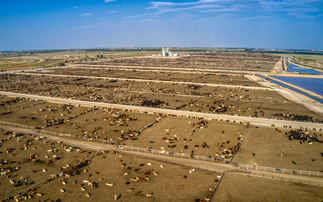International Partnership for Blue Carbon will work to increase the understanding of emissions from marine and coastal habitats and boost action to protect them
A new initiative to boost awareness of the important role coastal 'blue carbon' ecosystems play in tackling climate change was launched by the Australian government yesterday at the Paris climate summit.
The International Partnership for Blue Carbon aims to increase understanding of the impact carbon stored in marine and coastal habitats could have on climate change, and accelerate action to preserve coastal ecosystems such as mangroves, tidal marshes, and seagrasses.
"Blue carbon… could play a significant role in reducing emissions, while also supporting biodiversity conservation, fisheries habitat protection, and disaster risk reduction," said Greg Hunt, Australia's environment minister, in a statement. "Research has already demonstrated that coastal ecosystems... can be much more effective than forests at sequestering carbon."
The partnership was launched by the governments of Australia, Indonesia and Costa Rica along with a host of non-profit organisations and intergovernmental agencies, such as the Blue Carbon Initiative and the Pacific Islands Forum Secretariat.
"It is encouraging to see more nations recognising blue carbon and other nature-based solutions as powerful allies in efforts to combat climate change," said Inger Andersen, director general of the International Union for Conservation of Nature (IUCN), in a statement.
Blue carbon ecosystems account for only two to six per cent of the total area of tropical forest, but their degradation makes up 19 per cent of carbon emissions from global deforestation, the group said.
Moreover, the ecosystems offer crucial services, such as coastal protection, water filtration, and fisheries habitats, which are widely regarded as critical to efforts to bolster climate change resilience and protect biodiversity.
The partnership aims to scale up and amplify efforts to better manage 'blue carbon' resources by supporting the integration of coastal ecosystems into national greenhouse gas inventories and the development of new approaches to protect these critical resources. It will also work to mobilise funding from the private sector and mechanisms such as the Green Climate Fund to support management of 'blue carbon' ecosystems.
This article is part of BusinessGreen's Road to Paris hub, hosted in association with PwC.








